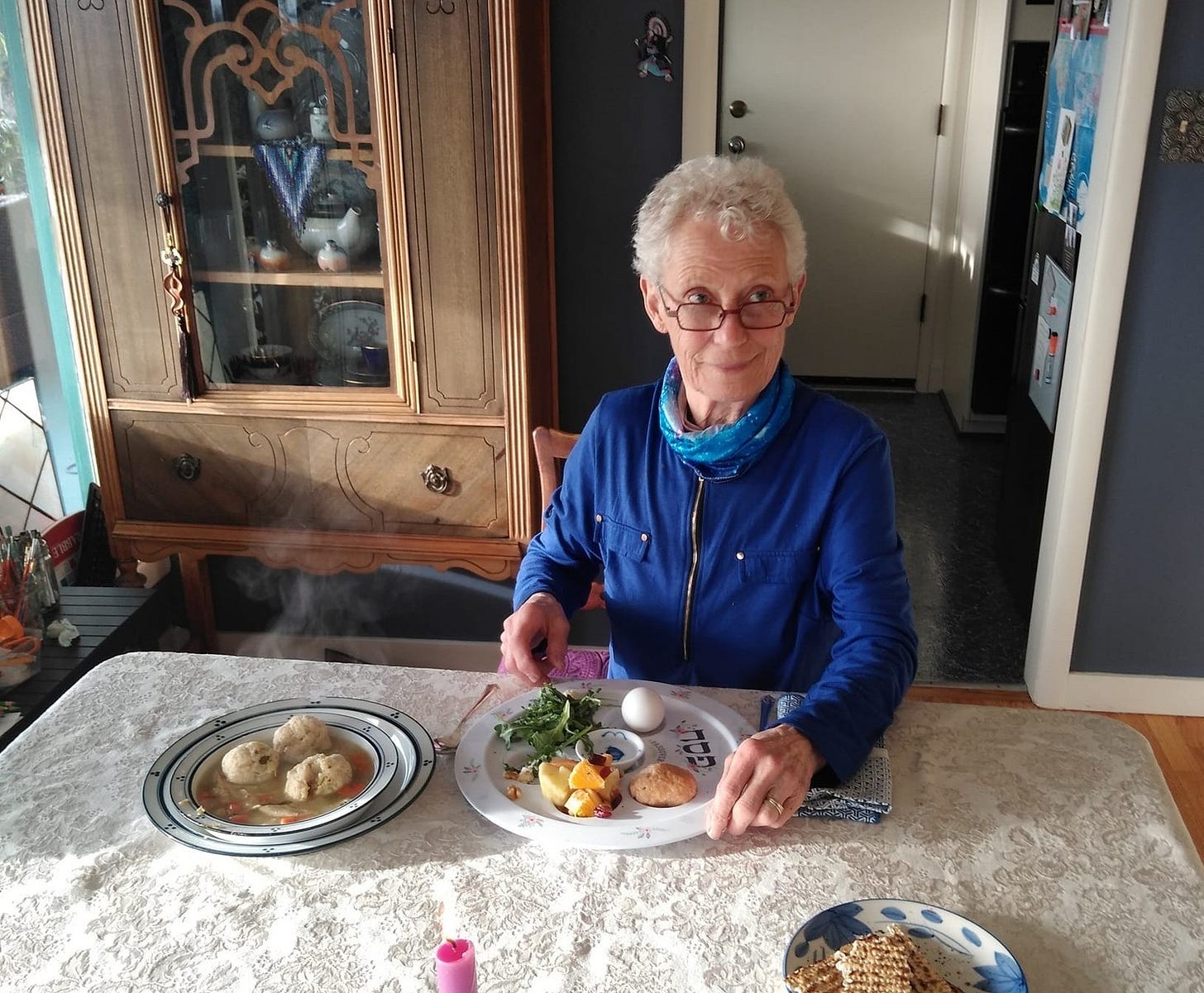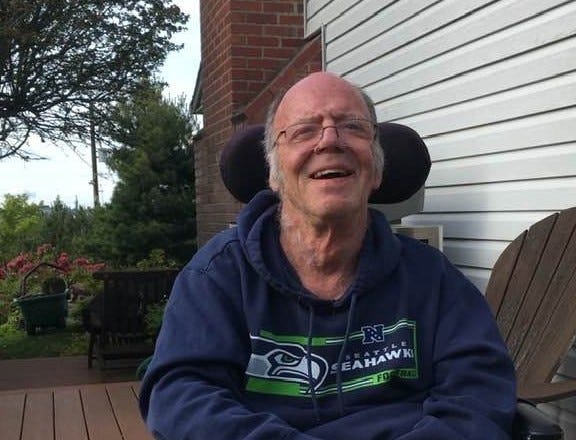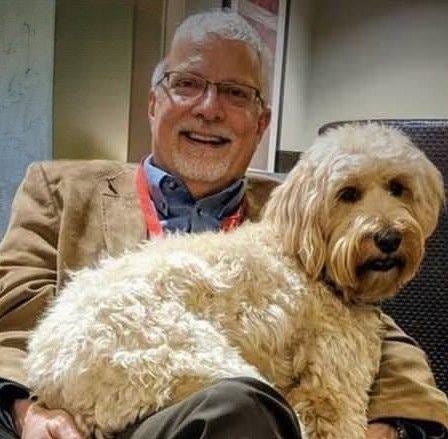Jews on why they left the Unitarian Universalist Church
Testimonies from ex-Jewish UUs
“My Jewish upbringing taught me to object to a community that wanted to silence diversity of opinion.”— Mark Perloe
I have written a few times about the Unitarian Universalist Church’s ongoing Jewish problems, including the two posts linked below. Ronald Friend, a Holocaust survivor and retired social psychology professor, opined that there is institutionalized antisemitism within the Unitarian Universalist Association (UUA). Numerous Jewish UUs, along with Rabbi Rick Jacobs, President of the Union for Reform Judaism, have testified that inflammatory statements and one-sided forums coming from within the national church may drive away many Jews and create a rift between the church and the mainstream Jewish community.
For this post, I talked to several Jews who were longtime UUs about their reasons for quitting the church.
My late mother, a Sephardic Jew whose ancestors immigrated to the United States after the Spanish and Portuguese Inquisitions, joined her Seattle neighborhood’s Unitarian Universalist (UU) congregation after my father was diagnosed with Alzheimer’s and she was seeking community.
A lifelong learner with an insatiable curiosity and love of books and debates, she was drawn to UU for its embrace of diverse viewpoints and beliefs and its 7 principles. As a longtime civil rights activist, she also appreciated its focus on social justice.
She was active in the congregation for several years and made friends she kept until her death.
However, she became disturbed by the direction the Unitarian Universalist Association began to take— what she saw as growing illiberalism, dogmatism, and the silencing and even punishing of those who expressed differing views.
She was troubled by the church’s and congregational leadership’s adoption of a race essentialist ideology, based on the writings of figures like Robin DiAngelo and Tema Okun. She likened this rigid worldview—where people are seen as victims or oppressors based on birth—to “Calvinism.”
She found it arrogant and condescending that UU social justice activists would lecture her and others—people who had spent decades effectively working for civil rights legislation— about being “uneducated” simply because they didn’t subscribe to the latest flavor-of-the-month theory.
As someone who valued action over talk, she also remarked that many UUs in congregations seemed to spend more time discussing and reading about justice than doing the actual work.
She also felt that many lacked understanding of Jews and Judaism, particularly how offensive and ignorant it was to label Jews as “oppressors” and a part of the “white supremacy.” In her view, much of antisemitism wasn't born of malice but of ignorance.
Eventually, she left her UU congregation and the denomination altogether, saying, “They switched religions on me.” Later, she even expressed embarrassment at having once called herself a UU.
Edna Whisler is an Ashkenazi Jew in Florida, with her family roots in Germany, and she was raised in a Unitarian Universalist congregation in Maryland. She used to describe herself as a “Jewish UU,” explaining, “I was raised UU and was a member of a UU congregation, but I was—and still am—deeply Jewish, both by birth and by choice.”
She recently shared her reasons for leaving the UU community after a lifetime of involvement.
“Why did I leave? Well, first, why did I choose to join a UU church as an adult instead of a Reform Jewish synagogue? Believe me, I thought about choosing the latter. But, in a choice that has turned out to be so poignantly ironic (given how WRONG it was), I decided to go with the one I thought would always accept and embrace me in all my religious and cultural complexity: UU.
The UU I grew up in welcomed and embraced complexity, ‘bothness,’ people who don't fit into typical boxes. I felt they SAW me as me. But the UU that exists now is the exact opposite of that. They don't see complexity at all. Everything is black or white, LITERALLY: they are obsessed with the racist construct/idea of ‘race.’ In trying to somehow make up for hundreds of years of racism in America, they are misguidedly trying to do so by being themselves racists: everyone is either Black/BIPOC (‘Black Indigenous Person of Color’) or white. UU no longer sees CULTURES or ethnicities.
I have a BA degree in cultural anthropology and sociology. I see cultures and complexity and heritages and histories, but UU and the Robin DiAngelos of this world see none of that: either you are a ‘white’ person and you are accountable and responsible for ‘white supremacy culture,’ or you are a Black or BIPOC person. This leaves out Jewish people entirely.
Why did I leave? As a human being, and as someone raised with REAL Unitarian Universalist values of being anti-racist, I got sick and tired of everything and everyone being reduced down to ‘races.’ And furthermore, the arbiters of who is assigned to what ‘race’ are the powers that be in any given UU congregation and the UUA—not the lived experience of the person they are reducing to a color. And, as a Jewish person, I got sick of every single Sunday (maybe not EVERY Sunday, but it was more and more and more, and it honestly really seemed like every Sunday) being lectured about how I was responsible for ‘white supremacy culture,’ because this DEEPLY offends me as a Jewish person!”
The straw that broke the camel’s back, leading her to walk out, was when members of her congregation were told they had to break into groups labeled “Whites” and “BIPOC.” She wrote:
“Those were your choices! Either you were supposed to self-sort yourself into the ‘Whites’ group, or the ‘BIPOC’ group, and I knew that I didn’t, one, approve of, or two, neatly fit into, either of those categories. I don’t approve of the categories because they are RACIST, and I don’t fit into them because I’m not ‘white’ exactly, even if you’re going to go with their shockingly racially reductionist categories, nor am I ‘BIPOC,’ as I’m not Black, either.
So I left due to the overt racism and race-centric-ness that has now taken over UU. UU is completely unrecognizable to me. I feel retraumatized every time I think about it.”
Robert Pacht had joined a UU congregation in Seattle at the recommendation of the then-minister. On paper, he seemed like a natural fit for Unitarian Universalism: a freethinking atheist, a political progressive, a disability rights and unions advocate, and a working-class supporter of Bernie Sanders. He enjoyed the community for several years but ultimately left, disillusioned by what he described as an increasingly judgmental and scolding culture.
He said he grew afraid to express his views, worried about being met with personal attacks, and described the environment as one where “I felt I had to walk on eggshells.” He said, “I thought UUs were supposed to be different, but they can be as self-righteous as Mormons.”
His ancestors being poor immigrants from Eastern Europe, he deeply resented the label of Jews as “privileged.” He urged fellow UUs to read Rabbi Michael Lerner’s below-linked essay Jews Are Not White to better understand why certain characterizations and theories about Jews are both offensive and misinformed.
Mark Perloe, an Ashkenazi Jew and a retired physician in Los Angeles, joined the UU Church due to its interfaith approach to religion, including supporting its members’ individual spiritual and philosophical paths and welcoming people of a wide diversity of beliefs. However, he said he quit his congregation because of the increasing intolerance, censorship, and race-centric views.
He wrote me the following:
“As a secular Jew, for many years I felt comfortable in a UU congregation where our ethnic and religious diversity was celebrated. The new UU leadership is more focused on celebrating the historically marginalized. Rather than creating a more inclusive community, UU has demonstrated hostility which has communicated that Jews and cis white males are no longer welcome.”
They are more interested in telling people how to believe than working to build consensus. They do not realize the power they possess and their ability to promote discord.”
He says that when he talked to his new minister to express his concerns, he was chastised.
“I asked to meet with the minister to better understand. I got the white=racist line, and was called a transphobic anti-lgbt cis white male, despite being one of the first reproductive and infertility doctors to offer reproductive services to the LGBT community. I was told that I could be part of the congregation but cis white men needed to shut the fuck up.
I am a proponent of Irshad Manji and feel both UU and the Democratic Party have it wrong focusing on identity rather than ideas and values. I could not remain part of a group that believed my labels said everything they would need to know to determine if my thoughts should be centered.
Whether UUA was attempting to move as far to the left as they could by adopting a stance against Israel is unclear, yet why would any Jew remain a member of an organization that abandons its principles and justifies Hamas’ Oct 7 attack while condemning any action Israel might take.
My Jewish upbringing taught me to object to a community that wanted to silence diversity of opinion. I believe I learned that questioning and exploring disagreement was an opportunity to better understand. UU saw disagreement as an unnecessary threat to be avoided at all cost.”
The article below, from Forward, a Jewish magazine, discusses a Jewish UU minister, Ana Levy-Lyons, who left Unitarian Universalism during the Israel-Gaza War to become a rabbi. Click on the image below to read it:
Levy-Lyons has an intriguing history. In the face of antisemitism in the United States during the 1950s, her Ashkenazi family changed their Jewish surname, never told the children they were Jewish, and raised them as Unitarian Universalists to conceal their Jewish identity. Levy-Lyons later discovered the truth and, while remaining within Unitarian Universalism and becoming a UU minister, embraced her Jewish identity and heritage. She negotiated with her UU congregation, First Unitarian of Brooklyn, to have Saturdays off for Shabbat.
After the events of October 7, 2023, she realized how much antisemitism exists within the progressive left. Indented below are quotes from the article.
“It’s ironic, given that my entire life I didn’t think antisemitism was a thing in this country anymore. I never really got it. Then Oct. 7 happened. It was the reaction from the progressive left in this country that has been startling and terrifying . . . Suddenly, I just started to only feel safe around Jews. I sense that people have some suspicion of me because I’m Jewish, and people wonder if I’m the ‘right’ kind of Jew or the ‘wrong’ kind of Jew.”
Strident progressives within her congregation pressured her to take a one-sided stance that was impossible for Levy-Lyons.
According to her, the prevailing view among progressives, including at First U, was that “if you are not calling for a ceasefire, you are complicit with genocide,” she said. “Either you are for Palestinian liberation and condemning Israel, or on the side of white supremacy, imperialism, colonialism, and genocide.”
“I don’t believe these are the only two options,” Levy-Lyons said. “But I felt my congregants viewing me that way.”
She ultimately left UU to become a rabbi.
One Unitarian Universalist commenter on this story noted it as "a failure of progressive thought, in UUism and elsewhere, to grapple with these issues (and others). She wasn't prevented from speaking her mind—she quit because she believed her congregation, and her denomination, was not open to addressing the issues in their full complexity . . . We tend to hold dualist notions about all sorts of issues and condemn anyone who even questions or addresses the complexities."
Miles Fidelman, a self-described “New York Jew” and an MIT-educated systems analyst, joined the Unitarian Universalist Church many years ago because of its reputation as a freethinking community. However, he recently dropped his membership and has been sharply critical of the national UU leadership in Boston, accusing it of embracing censorship, authoritarian tendencies, and punitive treatment of dissenters.
Fidelman also critiques the broader UU culture, which he believes has increasingly succumbed to groupthink.
He wrote the following:
"Unitarian Universalism used to be the home of Heretics, Revolutionaries, Transcendentalists, Abolitionists, and Activists who Believed in Deeds, Not Words. Free & Independent Congregations who swore covenants to ‘live together in peace, seek truth in freedom, serve humankind in fellowship’ – linked into loose association by the Cambridge Platform. The UUA was constituted as an association of congregations, to provide common services in support of our congregations. Now, the UUA has established itself as a Holy Office, imposing dogma on member congregations – largely through its control of ministerial search processes, religious education curricula, and channels of communication linking congregations and their members.
And all too many congregations willingly follow along without question or protest. There was a time when bishops feared to tread in the Americas. Now, Heretics and Activists have become sheep, cowering before idealogues, demagogues, and purveyors of revealed truth - rather than sending them running in fear for their lives.
It's really a binary choice whether congregations remain true to our core beliefs, and disavow the UUA as their representative - or go along, accept the new dogma, and become something other than Unitarians and Universalists.”









Yeah the UU is just white people. Almost every conservative evangelical group is more diverse. Something to think about. But I love the UUs and I think they’re great.
Maybe the conservative evangelicals deserve a little more credit from the left and media for being more diverse as far as racial obsessions are concerned.
Social Justice ideology is intrinsically antisemitic. Social Justice ideology posits that every social phenomenon can be described in terms of the oppressor/oppressed dichotomy. If any identity group is less successful than another, it must be due to oppression. Note they are not saying it can be due to oppression -- it must. Israel is more successful than the surrounding Arab states, and Jews are a successful group in America. So they must be oppressors, by Social Justice logic.
And yes, Jews are white by the Social Justice left’s definition. For that matter, they’re white by the definition of the Confederate States of America -- if you doubt that, google Judah P Benjamin. While antisemitism has existed in American history, there was no point where Jews were categorically considered to be not white. The whole “Jews aren’t white” thing is just a form of cope by Jews who desperately want to think the left is humane and they want to be good leftists, so they accept the Social Justice left’s categorical demonization of white people but try to carve themselves out of the hated group.